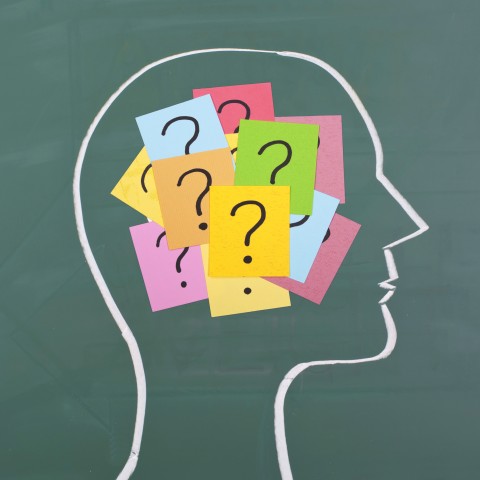
You might have heard stories about how difficult it is to learn Cantonese. After all, Cantonese is a tonal language with its own writing system based on 3000 to 4000 Chinese characters!
Even though Cantonese sounds complicated, and is certainly different from European languages such as English and Italian, it’s not that hard to master when you’re using the right tools and approach. So is Cantonese hard to learn? As with learning any other language, you just need to put in time, effort, and of course, your passion!
In this article, we’ll cover the easiest and hardest parts of Cantonese, talk about why you should learn the language, and tell you how to learn it effectively!
 Table of Contents
Table of Contents
- Cantonese in a Nutshell
- Learning Cantonese – The Easiest Part
- Learning Cantonese – The Hardest Part
- Why Cantonese?
- I Want to Learn Cantonese. Where Should I Start?
- Why is CantoneseClass101 Great for Learning Cantonese?
1. Cantonese in a Nutshell

- Cantonese is spoken in Guangdong Province of China, as well as in Hong Kong, Macao, and Southeast Asia.
- Cantonese originated from the city of Guangzhou, which is the capital of Guangdong Province (traditionally known as Canton).
- Cantonese is referred to as 廣東話 (gwong2 dung1 wa2), literally meaning “Guangdong dialect,” or 粵語 (jyut6 jyu5), meaning “Yue speech.”
- There are a total of 73 million Cantonese-speakers all over the world.
2. Learning Cantonese – The Easiest Part

Cantonese is straightforward!
For example, Cantonese grammar rules are simpler than those of many other languages. We don’t have tenses (past, future, past perfect, etc.) like English, nor do we have grammatical gender like French.
Also, we’re quite direct when expressing ourselves. Many Cantonese-learners, in an attempt to translate what is polite in their own language, actually make a mess of a sentence in Cantonese by adding a lot of unnecessary words.
For example, take this sentence: “Would you mind going to the store for me please?”
- A native Cantonese-speaker would ask: 你去士多? (nei5 heoi3 si6 do1)
- Literal translation of 你去士多: “You go store?”
Many westerners find it strange to be so concise, since this would feel rude to say in English. But finding places to add superfluous words (such as “please” and other common English niceties) is unnecessary. Cantonese is direct!
3. Learning Cantonese – The Hardest Part

This is a major Cantonese language difficulty that many new learners face.
You probably know already that Cantonese doesn’t use an alphabetical writing system like English does. Instead, it uses characters that are composed of parts that depict physical objects or abstract ideas. Further, there are no concrete rules for how a character should be pronounced based on its appearance.
What makes Cantonese even more different from many European languages is that Cantonese is a tonal language. The meaning of a word can change depending on the pitch that’s used, even if the pronunciation is the same. People not familiar with this tonal system may be easily confused and think that certain tones sound identical!
This problem of perception is perhaps why Cantonese is so hard to learn, especially considering that there are nine tones in Cantonese (compared to four tones in Mandarin).
If you’ve been learning Cantonese for any length of time, you may know by now that we use a romanization system called “Jyutping.” This system consists of two components: “pronunciation” followed by a “tone number,“ to notate the sound of a word. Be mindful that even if the “pronunciation” of two or more words is identical, the meaning of the words can be very different if they use different “tone numbers.”
For example:
| Chinese Character | Romanization | Meaning |
| 巴 | baa1 | “bus” |
| 把 | baa2 | “handle” |
| 罷 | baa6 | “cease” |
As you can see, changing the pitch pattern can have a huge impact on a word’s meaning!
4. Why Cantonese?
Have you ever heard of Bruce Lee? Jackie Chan? Chow Yun-fat? Well, they all came from Hong Kong!
There are countless reasons why you should learn Cantonese.
By learning Cantonese, you’ll be providing yourself with new opportunities. As you strengthen your language skills and learn more about Cantonese culture, you’ll start to find that you’re able to better navigate life and take advantage of more opportunities in the workplace—and the world! Traveling to or doing business in Hong Kong will no longer be a far-away dream, but rather a very possible reality. You’ll even have the freedom to move to Hong Kong or Macao to earn a living, or better yet, build a career using your newfound skills—instead of being stuck in one place.
Hong Kong is one of the world’s most significant financial centers! It has the highest Financial Development Index score and it was ranked as the world’s most competitive economy, as well as the freest market economy, in the world. Being familiar with the Cantonese language, culture, and business environment can be key in settling important negotiations or making major deals.

Will you be traveling for pleasure instead? Well, a solid understanding of Cantonese can make your experience in the local Hong Kong markets, rural areas, and restaurants so much smoother and a lot more fun!
Another great benefit of learning Cantonese is that it will give you the opportunity to grow and look at the world with a more open mind. For instance, take a look at Cantonese pop culture! Many of the movies, dramas, and songs that are loved by people from all over the world were created in Hong Kong. Not everything gets translated, either. So unless you know Cantonese, you’re missing out on a lot of the amazing things that Cantonese pop culture has to offer.
Career growth, smooth travels, personal enlightenment…but that’s not all! Studies have shown that studying another language can improve memory and keep one’s brain in good condition. This, in turn, may prevent early onset of Alzheimer’s or dementia, giving the language-learner up to five additional years of quality life to live!
5. I Want to Learn Cantonese. Where Should I Start?

1. Learn the romanization.
Pronunciation might be hard, but with the romanization system, you’ll be able to learn the correct pronunciation of a word. This way, you don’t have to keep guessing and going over your vocabulary nonstop!
Literacy in Cantonese requires the memorization of thousands of components and characters, which can be quite daunting for new Cantonese-learners. To start learning the sounds of Cantonese without the baggage of characters, Cantonese jyutping (also referred to as Cantonese romanization) comes in. This is essentially a way to help translate Cantonese pronunciation into English pronunciation.
2. Focus on speaking.
Many Cantonese beginners find it tempting to learn both reading and writing at the same time. But we believe that it may be better to start learning how to speak before you get into reading and writing at all! This will keep you from using up all of your mental energy and getting burned out at the beginning of your studies, and provide a more solid base for your language studies.
As mentioned earlier, there are thousands of Cantonese characters, and they were created based on abstract ideas. It takes a long time to gradually memorize and become familiar with all of them. Instead, focus on speaking first. Master it. This will also give you a chance to practice speaking with locals!
3. Practice makes perfect.
The truth is that the only way you’re going to get a standard accent, well-ordered sentences, and a better understanding of tones is by speaking. So just get out there and practice! Even if you make a mistake, Cantonese people can usually guess what you’re saying, especially when there’s context. And if they can’t understand, there’s always charades.
And of course, you need a good teacher to guide you and provide the resources you need—and that’s where CantoneseClass101.com comes in!
6. Why is CantoneseClass101 Great for Learning Cantonese?

With CantoneseClass101.com, you can have your daily dose of Cantonese whenever and wherever you want, through mobile apps, desktop software, and our website. We offer entertaining, engaging, and effective lessons on various aspects of the Cantonese language and culture.
Until now, we’ve delivered more than 750,000,000 lessons to thousands of happy students from all around the globe. You can learn Cantonese with over 1060 audio and video lessons delivered by our knowledgeable and energetic hosts, detailed PDF lesson notes, an abundance of vocabulary learning tools, spaced-repetition flashcards, and a lively community to discuss the lessons with fellow learners. What are you waiting for? Download our lessons, enjoy our audio and video files, and start learning now!
And keep in mind that if you prefer a one-on-one learning approach and want to further accelerate your Cantonese-learning, you can take advantage of our MyTeacher program!
Know that your hard work will pay off, and before you know it, you’ll be speaking Cantonese like a native!
Before you go, we would love to hear your thoughts on learning Cantonese! What Cantonese difficulty do you face the most? Do you feel ready to start (or continue) learning, or do you still have questions or concerns?










